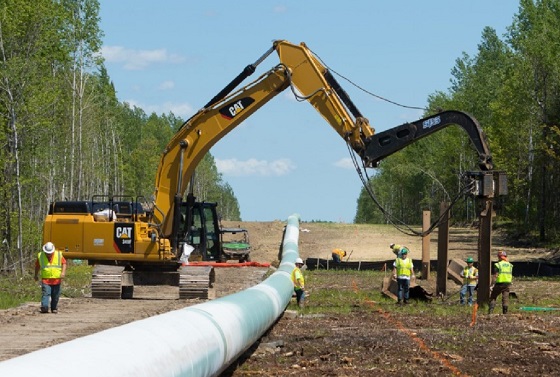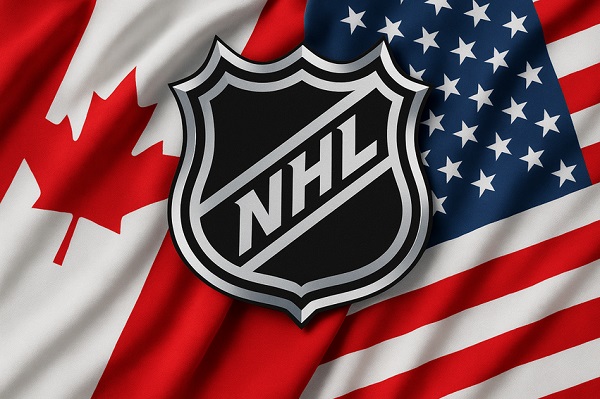Opinion
10 days into Election 2017 and the focus today is the province. What sayeth the candidates, or some at least?

Macleans published a list of the top 100 cities in Canada to retire in and Red Deer was not on the list. One of the criteria is access to health care. Apparently we rate pretty low in that category.
This is a provincial jurisdiction but some candidates are weighing in on this issue. One talks about how the hospital is always under renovation. The new parkade has come under fire for different reasons. Two suggests building a second hospital altogether, having 2 separate hospitals.
Access to timely treatment and surgery is a common issue. Another common complaint is the need to leave the city for surgery, see a specialist or for assisted living.
Seniors and others who cannot live on their own, take up a hospital bed awaiting a home in an assisted living facility. There are many stories of long-time residents spending their final years in Innisfail, Stettler and Rimbey to name but a few. Creating hardships for family and spouses remaining in Red Deer.
No wonder we did not make the list of top 100 cities to retire in.
What do some of the candidates say;
Tara Veer on the Red Deer Regional Hospital
Even though Hospital infrastructure is completely under the decision-making jurisdiction of the Provincial Government, the needs of our community are a priority for the City. There are numerous examples over the past four years of the City strongly advocating to the Provincial Government to fulfill our local provincial infrastructure needs; The Hospital is one of them and most certainly will continue to be a priority until we secure the expansion of the Red Deer Regional Hospital.
Mayor Veer has spoken and/or written substantially on this issue and this latest excerpt on Todayville.com; “I have also met and spoken with our local MLA’s and the Minister of Health regarding our community’s expectations regarding Hospital infrastructure on multiple occasions. If citizens of Red Deer would like to add their voice to our community and Council’s advocacy efforts, we encourage citizens to contact the Minister of Health and your local MLA (Kim Schreiner or Barb Miller if you live in Red Deer).”
Ken Johnston
I am meeting with our MLA’s tomorrow as have been through meetings with the Doctor group, the Foundation, private donors and AHS. I can’t speak for other candidates but that is how I am advocating for our City. Lives continue to be at risk in Red Deer and the Central Zone, I can personally attest to that. It is Capital that is needed and righting a gross inequality in Health Care spending.
Sam Bergeron
-A school and a hospital would be helpful. An elementary, middle and high school for that matter. Even a small hospital would help the north end
Lawrence Lee
We also desperately need a Regional Hospital Centre upgrade. For at least a decade we have seen the over 400,000 people that the Red Deer Regional Hospital serves not receive the same level of care that Albertans have in Edmonton and Calgary. As the province’s third largest city and a hospital that serves such a large population I will fight to support our Central Alberta region in achieving health equity and care for its residents
Michael Dawe
Having been a one time chair of the former Red Deer Regional Hospital Board knows the issues and intricacies of the hospitals would also be an informed advocate for the hospital.
I remember having very similar concerns thirty years ago and a political candidate in a federal election reminded us that we cannot have good health without a good job, money for food, a sense of security and a roof over our head. Many of these issues can be handled by city council leaving the issue of the hospital as a precursor for the provincial election of May 2019.
Red Deer can advocate for the province to step up, but there are many things the city council can do locally to ease the demand on the hospital. Let us hear from all the candidates, shall we?
Banks
Scrapping net-zero commitments step in right direction for Canadian Pension Plan

From the Fraser Institute
By Matthew Lau
And in January, all of Canada’s six largest banks quit the Net-Zero Banking Alliance, an alliance formerly led by Mark Carney (before he resigned to run for leadership of the Liberal Party) that aimed to align banking activities with net-zero emissions by 2050.
The Canada Pension Plan Investment Board (CPPIB) has cancelled its commitment, established just three years ago, to transition to net-zero emissions by 2050. According to the CPPIB, “Forcing alignment with rigid milestones could lead to investment decisions that are misaligned with our investment strategy.”
This latest development is good news. The CPPIB, which invest the funds Canadians contribute to the Canada Pension Plan (CPP), has a fiduciary duty to Canadians who are forced to pay into the CPP and who rely on it for retirement income. The CPPIB’s objective should not be climate activism or other environmental or social concerns, but risk-adjusted financial returns. And as noted in a broad literature review by Steven Globerman, senior fellow at the Fraser Institute, there’s a lack of consistent evidence that pursuing ESG (environmental, social and governance) objectives helps improve financial returns.
Indeed, as economist John Cochrane pointed out, it’s logically impossible for ESG investing to achieve social or environmental goals while also improving financial returns. That’s because investors push for these goals by supplying firms aligned with these goals with cheaper capital. But cheaper capital for the firm is equivalent to lower returns for the investor. Therefore, “if you don’t lose money on ESG investing, ESG investing doesn’t work,” Cochrane explained. “Take your pick.”
The CPPIB is not alone among financial institutions abandoning environmental objectives in recent months. In April, Canada’s largest company by market capitalization, RBC, announced it will cancel its sustainable finance targets and reduce its environmental disclosures due to new federal rules around how companies make claims about their environmental performance.
And in January, all of Canada’s six largest banks quit the Net-Zero Banking Alliance, an alliance formerly led by Mark Carney (before he resigned to run for leadership of the Liberal Party) that aimed to align banking activities with net-zero emissions by 2050. Shortly before Canada’s six largest banks quit the initiative, the six largest U.S. banks did the same.
There’s a second potential benefit to the CPPIB cancelling its net-zero commitment. Now, perhaps with the net-zero objective out of the way, the CPPIB can rein in some of the administrative and management expenses associated with pursuing net-zero.
As Andrew Coyne noted in a recent commentary, the CPPIB has become bloated in the past two decades. Before 2006, the CPP invested passively, which meant it invested Canadians’ money in a way that tracked market indexes. But since switching to active investing, which includes picking stocks and other strategies, the CPPIB ballooned from 150 employees and total costs of $118 million to more than 2,100 employees and total expenses (before taxes and financing) of more than $6 billion.
This administrative ballooning took place well before the rise of environmentally-themed investing or the CPPIB’s announcement of net-zero targets, but the net-zero targets didn’t help. And as Coyne noted, the CPPIB’s active investment strategy in general has not improved financial returns either.
On the contrary, since switching to active investing the CPPIB has underperformed the index to a cumulative tune of about $70 billion, or nearly one-tenth of its current fund size. “The fund’s managers,” Coyne concluded, “have spent nearly two decades and a total of $53-billion trying to beat the market, only to produce a fund that is nearly 10-per-cent smaller than it would be had they just heaved darts at the listings.”
Scrapping net-zero commitments won’t turn that awful track record around overnight. But it’s finally a step in the right direction.
Bruce Dowbiggin
What Connor Should Say To Oilers: It’s Not You. It’s Me.

This just in. Connor McDavid is on track to be the greatest hockey player ever. Apologies to the Gretz/ Orr/ Howe partisans. But if he stays healthy and gets the hell out of Edmonton he will be hands-down the best ever. He is equal measures of Gretzky’s intuitive genius, Orr’s 200-foot impact. Howe’s sandpaper attitude. It’s an honour to watch him.
We know, we know, if he is so great why couldn’t he get the Oilers over the hump, particularly the past two seasons against Florida? Gretz, Orr, Howe all won Stanley Cups while leading their teams. So did Mario Lemieux. Fair point. But Howe in his prime never played more than two series in the postseason. Orr often played just three. Gretz teams often bagelled opponents for years.
McDavid’s teams the last two years have had lengthy paths to tred. Just getting to a Final is a huge accomplishment. Repeating that feat (going seven then six games) in the Final is humungous. It’s exhausting, mentally and physically. That’s why so few teams do it.
Still, that’s not the point. We have been asking since 2018 how long McDavid will hobble his legacy by staying in Edmonton. Those early columns were talking about a team that missed playoffs or did a Maple Leafs fold early on. The current iteration of the Oilers has gotten to the brink. They have players who’ve been around a while. And fell short.

Now the Oilers are an old team, the oldest in the regular season, the oldest team in the playoffs this year. Teams carrying more than two plus-30 players have a miserable track record of winning Cups. And the Oilers have zero Grade A prospects in the pipeline. At 28, McDavid is a young guy on their roster. Not good.
As the hockey world knows he can sign an extension on July 1 to follow the contract he has now. Money will be no object as the NHL salary cap (finally) goes up. Term will be forever if he wants it. His running mate Leon Draisaitl is tied up till age 36. The Oilers desperately want him to stay after the Gretzky fiasco in 1988. So what is he going to do? He’s got national endorsements in Canada, but in the U.S.? Connor who? The sky is the limit.
Oilers fans palpitating over the future of their star were looking for hints as to his mindset when he met the media following the Oilers loss in six games to Florida. It was a chance for him to say he’s staying, he loves the place, his wife is committed to freezing every winter in the Alberta capital. He could have cried and said “Mess told me not to do that”.
What they got was a lot of maybe. Yes, he kept the doors open, but he said he needs time to see the landscape till the clock tolls on July 1. He needs to examine whether this veteran team has a future. Because in a few years they’ll be like Howe’s Detroit teams in the 60s, a played-out dynasty.
Under NHL rules no team can contact him about signing. But he will know that everyone will want him at a max deal. Some will offer no state income tax. Some will have teams on the cusp of the Cup he desires (see Matthew Tkachuk to Florida in 2023). Some will be giant U.S. media cities with the ability to make him what Gretzky became in L.A. Some will offer warm weather and anonymity away from the rink.
These are all knowns. For the impatient, teams can approach the Oilers now about a trade. So he’s holding all the cards. It’s prom night and he gets his pick. Unless Edmonton (gulp) jumps the gun on a trade.

Let’s play Peter Pocklington for a minute here and see this from the Oilers’ POV. Pocklington traded Gretzky, because Peter was broke. That’s not Darryl Katz’s problem. His problem is his team is about to get ancient. There is no McDavid for Draisaitl on the horizon. Plus, you’ve tied up several players (Nurse, Nugent Hopkins) to contracts they can’t hope to play up to. And youngish players coming into free agency.
He must address the other side of the 1988 Gretzky equation. How to get full market value for a superstar? Which means getting another star to help Draisaitl going forward. You could let the two play out the string together in Edmonton, of course. But with so many strong teams in Colorado, Vegas, Dallas, even Winnipeg that would be a hard slog. And by the time you realized that it would be too late.
The smart play, as Michael Corleone would say, is move fast. Trade McDavid before the start of next season for a boatload of young players to supplement Draisaitl. Take a short-term PR hit but live to compete another day.
Of course, Katz is not going to trade McDavid. He’s a fanboy owner. He’ll throw the Rexall kitchen sink at him and hope that’s enough. McDavid will be patient (if he’s smart). The “will-he-sign?” drama will bleed into the next season, a millstone for the team. The distractions will mount before Edmonton realizes that an unsigned McDavid is a liability. And Connor on a max deal with a minus team is no bargain either.
Remember the re-structured Oilers won a Cup in 1990 using Mark Messier and the players they got for Gretzky. Think about it, Edmonton.
Bruce Dowbiggin @dowbboy is the editor of Not The Public Broadcaster A two-time winner of the Gemini Award as Canada’s top television sports broadcaster, his new book Deal With It: The Trades That Stunned The NHL And Changed hockey is now available on Amazon. Inexact Science: The Six Most Compelling Draft Years In NHL History, his previous book with his son Evan, was voted the seventh-best professional hockey book of all time by bookauthority.org . His 2004 book Money Players was voted sixth best on the same list, and is available via brucedowbigginbooks.ca.
-

 Alberta1 day ago
Alberta1 day agoCalls for a new pipeline to the coast are only getting louder
-

 Alberta1 day ago
Alberta1 day agoAlberta pro-life group says health officials admit many babies are left to die after failed abortions
-

 Business1 day ago
Business1 day agoCanada’s economic pain could be a blessing in disguise
-

 espionage1 day ago
espionage1 day agoFrom Sidewinder to P.E.I.: Are Canada’s Political Elites Benefiting from Beijing’s Real Estate Reach?
-

 Business1 day ago
Business1 day agoRhetoric—not evidence—continues to dominate climate debate and policy
-

 Energy1 day ago
Energy1 day agoEnergy Policies Based on Reality, Not Ideology, are Needed to Attract Canadian ‘Superpower’ Level Investment – Ron Wallace
-

 conflict1 day ago
conflict1 day agoU.S. cities on high alert after U.S. bombs Iran
-

 Business2 days ago
Business2 days agoHigh Taxes Hobble Canadian NHL Teams In Race For Top Players




